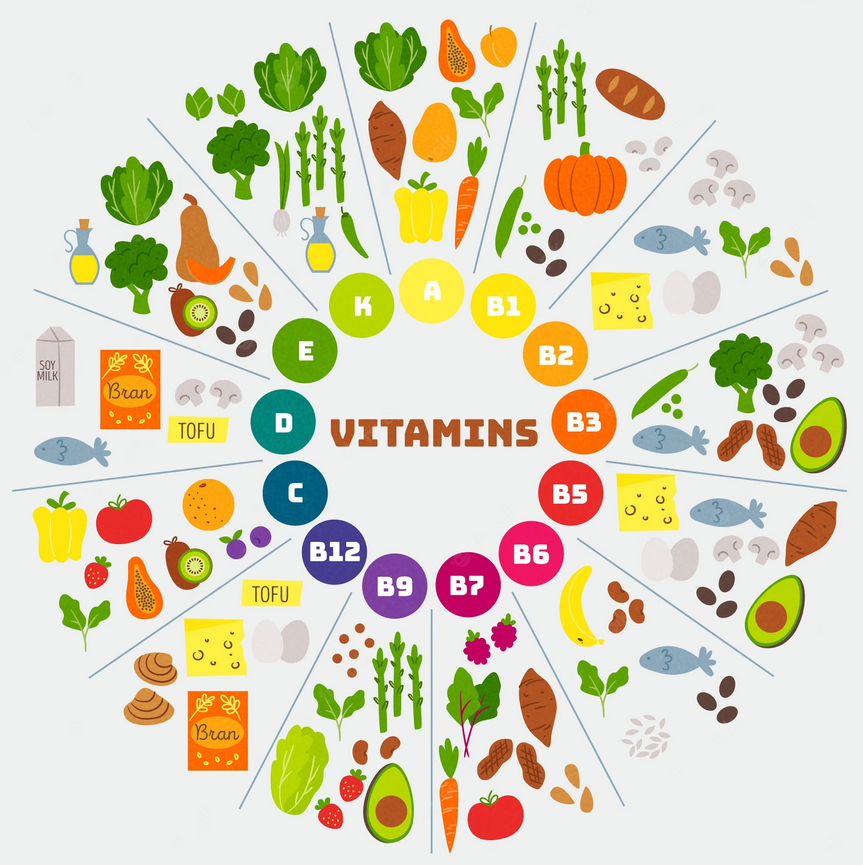Vitamin B12, scientifically known as cobalamin, is a water-soluble vitamin crucial in various bodily functions. From forming red blood cells to supporting nerve function and DNA synthesis, this powerful nutrient performs an array of essential tasks that keep our bodies running like well-oiled machines.
One remarkable aspect of vitamin B12 is its ability to boost energy levels and combat fatigue. So, I frequently feel worn out or lack the stamina to tackle daily challenges. You might be surprised to discover how a simple adjustment in your diet, explicitly increasing your B12 intake, can have transformative effects on your overall well-being.

Moreover, vitamin B12 is indispensable for maintaining a healthy nervous system. It nurtures and protects nerve cells, promoting their proper function and ensuring the smooth transmission of messages between the brain and other body parts. By supporting nerve health, B12 contributes to enhanced cognitive function, improved mood, and a more balanced emotional state.
As we journey deeper into vitamin B12, we will uncover the various sources through which you can obtain this essential nutrient. Whether you prefer a diet rich in animal products or a plant-based lifestyle, we will explore the options available to ensure everyone can meet their B12 requirements and thrive.
Does Vitamin B12 Taking Make You Pee More?
Vitamin B12 consumption should not make you pee more because B12 does not possess diuretic properties. Instead, vitamin B12 is primarily absorbed in the small intestine and then enters the bloodstream, where it is transported to the liver and other tissues for utilization.
The primary reason why vitamin B12 consumption does not lead to increased urination is that it does not have a diuretic effect. Diuretics are substances that promote urine production and can cause you to urinate more frequently. Common examples of diuretics include certain medications, such as those used to treat high blood pressure or edema, and beverages like coffee and alcohol.
Vitamin B12, on the other hand, does not possess diuretic properties. Instead, it is primarily absorbed in the small intestine and then enters the bloodstream, where it is transported to the liver and other tissues for utilization. Excess vitamin B12 that is not immediately needed is typically stored in the liver for future use or excreted through the urine. However, the amount expelled is generally minimal and not significant enough to cause an increase in urination.
It’s important to note that while vitamin B12 itself does not have a diuretic effect, certain factors or conditions may indirectly contribute to increased urination. For example, suppose you consume foods or beverages with a diuretic impact alongside your vitamin B12 intake, such as caffeinated beverages or alcohol. In that case, you may experience increased urination due to those substances rather than vitamin B12 itself.
If you experience excessive urination or any other unusual symptoms after taking vitamin B12 supplements, it’s advisable to consult with a healthcare professional. They can help determine the underlying cause and provide appropriate guidance or treatment.
Can taking vitamin B12 cause frequent urination?
Vitamin B12 will not cause frequent urination because of Vitamin B12 absorption and metabolism, water solubility, and lack of diuretic properties.
Vitamin B12, in and of itself, does not directly cause frequent urination. Here are a few reasons why this is the case:
- Absorption and Metabolism: When you consume vitamin B12, it is absorbed in the small intestine and enters the bloodstream. From there, it is transported to various tissues and organs for utilization. The body regulates the absorption and metabolism of vitamin B12, ensuring that the levels are maintained within a specific range. Excess vitamin B12 is stored in the liver for future use or excreted through the urine. However, the amount expelled is generally minimal and not significant enough to cause an increase in urination.
- Water Solubility: Vitamin B12 is a water-soluble vitamin that dissolves in water and can be easily transported into the bloodstream. Water-soluble vitamins are generally not stored in the body to the same extent as fat-soluble vitamins. Instead, any excess amounts are excreted through urine. However, the water-solubility of vitamin B12 does not mean it directly promotes increased urine production or frequency.
- Diuretic Properties: Diuretics increase urine production and cause more frequent urination. Common examples include certain medications, caffeine, and alcohol. However, vitamin B12 does not possess diuretic properties. Therefore, it does not stimulate the kidneys to produce more urine or interfere with the normal functioning of the urinary system.
It’s important to note that while vitamin B12 does not cause frequent urination, individual responses may vary. For example, some people may experience changes in urine color due to vitamin B12 or its metabolites, but this is generally harmless and not an indication of increased urination frequency.
If you notice any unusual symptoms, including frequent urination, after taking vitamin B12 supplements, it’s recommended to consult with a healthcare professional. They can evaluate your situation and determine if underlying factors contribute to your symptoms.
- How Many Tablespoons is One Clove of Garlic? - June 26, 2024
- How to Measure 3/4 Cup When You Don’t Have the Right Measuring Cup? - June 6, 2024
- How Much Does Cooked Pasta Weight Compare To Dry? - April 30, 2024
